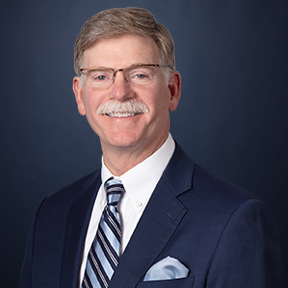Manufacturers: Issues that May Lead to Union Organizing Activity
By: Donald S. Smith – PartnerMany years ago, I began my practice with a law firm that only represented management in labor and employment law matters. I initially described myself as a “labor lawyer.” At the time, the majority of the work I did was “traditional” labor law which was focused on issues involving unions. I worked with employers who had received petitions for elections to be held by the National Labor Relations Board (NLRB) to determine whether their employees desired to be represented by a union. Often during those cases, the union would file unfair labor practice charges against the employer. If the employer lost the election and had to recognize the petitioning union, I would represent the employer in its collective bargaining negotiations with the union. Late-night bargaining sessions in smoke-filled rooms caused many a sleepless night.
During the 1990s, it seemed the unions were no longer attempting to organize the employers I represented. Instead, there was an increase in the number of Title VII discrimination cases filed in federal courts that occupied more of my time. Eventually, I began to refer to myself as an “employment lawyer.”
The NLRB members and their General Counsel are appointed by the President with Senate approval. A change in the White House usually means a change in the political make-up of the NLRB.
This year has seen a resurgence in my “labor” practice. The NLRB members and their General Counsel are appointed by the President with Senate approval. A change in the White House usually means a change in the political make-up of the NLRB. Likely fostered by a more liberal political climate and concern for a potential return to a more conservative climate, the unions have become very active once again, and are aggressively seeking to sign up new employees in a variety of businesses. This year, I have handled more union elections and unfair labor practice charges than I did in the last five years combined. I now refer to myself as a “labor and employment lawyer” to more accurately reflect the amount of time I spend in both areas of law.
Employers may have become complacent, with the lack of activity in recent years lulling employers into thinking they will not be targets of union organizing campaigns. But with the resurgence of union activity, a wise employer will be on the lookout for the sometimes-aggressive tactics unions employ. For example, one tactic unions may use is called “salting.” A form of salting occurs when a union organizer shows up to apply in-person for a job wearing a shirt with a visible union logo on it. If he does not get hired, he will file an unfair labor practice charge with the NLRB claiming he was unlawfully refused the job because of his union affiliation. If the NLRB determines the employer refused to hire the organizer because of his union affiliation, the NLRB will insist on the organizer being hired by the employer and being paid backpay for the time he missed.
Employers also need to be aware of the kinds of problems among their workforce that can open the door for union organizing activity. For example, the following are some issues that may trigger union activity:
- The perception that employees are being ignored or are being treated unfairly;
- Poor working conditions;
- The perception of being underpaid;
- Uncertainty whether the business may be sold;
- The termination of a popular employee; or
- Employees feeling like their employer does not care about them.
Employers who treat their employees as easily replaceable objects may not believe their employees would ever be interested in organizing with a union, but recent trends indicate those employers are ignoring reality. To help avoid union infiltration, employers should be proactive to make sure they are taking care of their employees and “showing them the love” they desire.
If your business needs guidance on the various aspects of labor and employment law, call or email Riley Bennett Egloff LLP® for guidance.

Donald S. Smith – Attorney at Law
Donald Smith limits his practice to representing employers and executives in labor and employment matters. He defends employers in cases pending before state and federal courts, the National Labor Relations Board, Equal Employment Opportunity Commission, Indiana Civil Rights Commission, U. S. Dept. of Labor, OSHA, IOSHA, Indiana Dept. of Workforce Development, and Indiana Worker’s Compensation Board. Don advises employers concerning various employment issues such as employee handbooks, employment agreements, severance agreements, covenants not to compete, restrictive covenants, wrongful termination, collective bargaining, labor arbitration, unions, discrimination, harassment, wage and hour matters, unemployment compensation and worker’s compensation.
© Riley Bennett Egloff LLP
Disclaimer: Article is made available for educational purposes only and is not intended as legal advice. If you have questions about any matters in this article, please contact the author directly.
Permissions: You are permitted to reproduce this material itn any format, provided that you do not alter the content in any way and do not charge a fee beyond the cost of reproduction. Please include the following statement on any distributed copy: “By Donald S. Smith© Riley Bennett Egloff LLP® — Indianapolis, Indiana. www.rbelaw.com”
Posted on August 7, 2024, by Donald S. Smith
